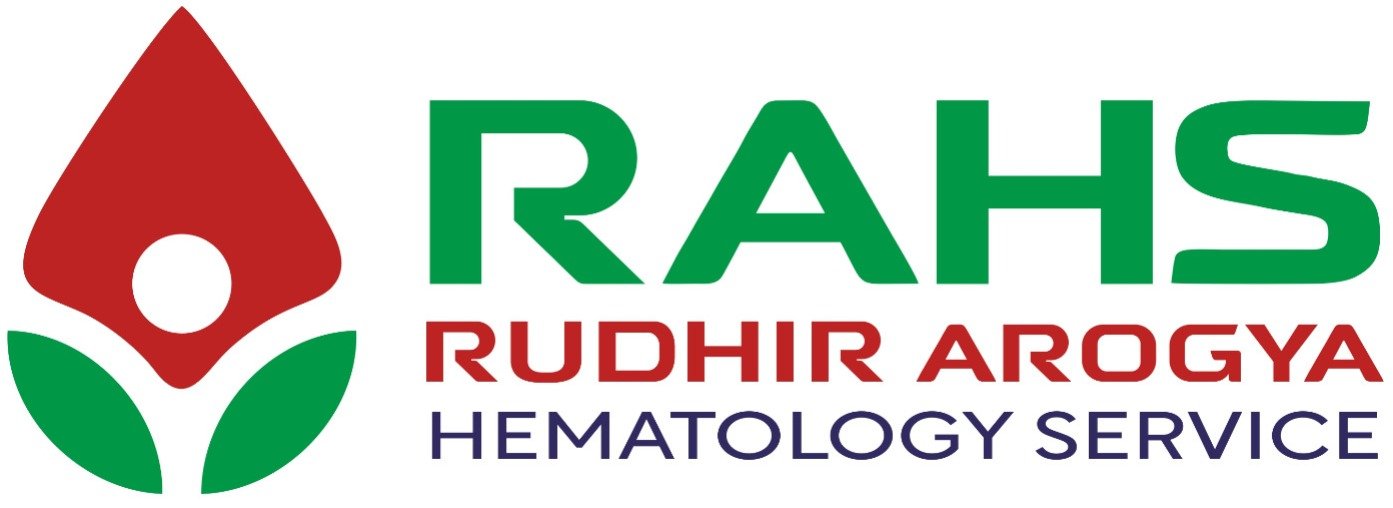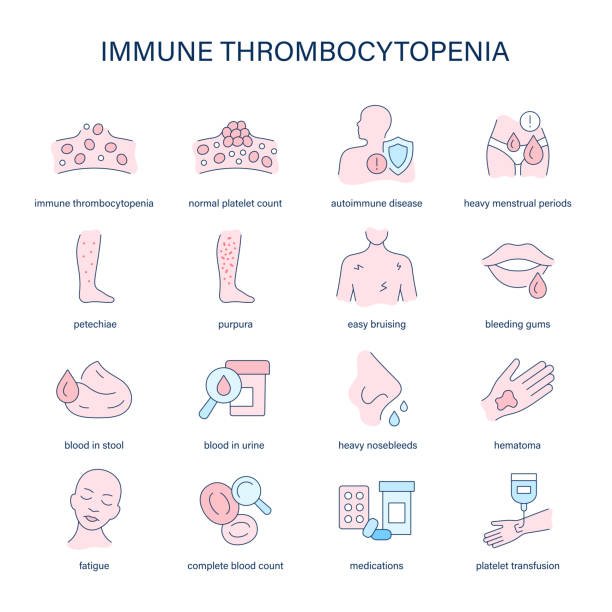Immune Thrombocytopenia (ITP) treatment in Lucknow
Immune thrombocytopenia (ITP) is a condition where the immune system mistakenly destroys platelets, leading to a low platelet count. This can cause symptoms like easy bruising, bleeding gums, and frequent nosebleeds. ITP can be primary (without an underlying cause) or secondary (linked to autoimmune diseases, infections, or medications).
For those seeking immune thrombocytopenia treatment in Lucknow, Rudhir Arogya Hematology Centre is one of the best hospitals specializing in ITP care.
Book Your Appointment
Types of Immune thrombocytopenia (ITP)
Immune Thrombocytopenia (ITP) is a disorder in which the immune system mistakenly attacks and destroys platelets, leading to an increased risk of bruising and bleeding. This condition varies in its presentation, duration, and underlying causes, allowing it to be classified into different types.
Acute ITP
Acute ITP is common in children, often triggered by a viral infection. It develops suddenly with bruising, nosebleeds, and skin spots but usually resolves within six months without long-term treatment. Most cases recover as platelet levels normalize.
Chronic ITP
Chronic ITP lasts over 12 months, mainly affecting adults. It requires ongoing treatment to manage low platelets and bleeding risks. Therapies include corticosteroids, IVIG, or immune modulators. Some achieve remission, while others need lifelong care.
Primary ITP
Primary ITP has no known cause and occurs when the immune system destroys platelets. Genetic and environmental factors may play a role, but diagnosis excludes other conditions. Treatment manages symptoms and maintains platelet levels.
Secondary ITP
Secondary ITP occurs due to underlying conditions like autoimmune diseases, infections, or medication side effects. Treating the cause, along with platelet management, helps reduce bleeding risks and improve overall patient outcomes.
Refractory ITP
Refractory ITP occurs when treatments fail to maintain safe platelet levels, causing persistent bleeding risks. Advanced options like splenectomy or immune-suppressing therapies may be needed, requiring specialist care for long-term management.
Pregnancy-associated ITP
Pregnancy-associated ITP occurs due to immune changes destroying platelets. Mild cases may need no treatment, while severe ones require medication changes. Monitoring by obstetricians and hematologists ensures a safe pregnancy and delivery.
Symptoms of Immune Thrombocytopenia (ITP)
- Easy Bruising: Unexplained or frequent bruises appear on the skin.
- Bleeding gums: gums may bleed easily, especially during brushing or flossing.
- Frequent Nosebleeds: Recurrent or spontaneous nosebleeds.
- Petechiae: Small red or purple spots on the skin caused by tiny blood vessel leakage.
- Prolonged Bleeding: Cuts or injuries may take longer to stop bleeding.
- Fatigue: Feeling unusually tired or weak, often related to bleeding issues.
- Heavy Menstrual Bleeding: In women, periods may be unusually heavy or prolonged.
- Internal Bleeding: In severe cases, bleeding may occur internally, which can cause symptoms like abdominal pain or blood in the urine or stool.
Causes of Immune Thrombocytopenia (ITP)
Primary ITP
Cause: The exact cause is unknown, but it involves the immune system mistakenly attacking platelets.
Immune Response: The body produces antibodies that bind to platelets, marking them for destruction.
Effect on Platelets: The spleen and other immune components remove these marked platelets, reducing their count in the bloodstream.
Resulting Symptoms: Low platelet levels increase the risk of excessive bleeding and bruising.
Secondary ITP
This type is associated with other conditions or triggers:
Autoimmune Diseases: Conditions like systemic lupus erythematosus (SLE) or rheumatoid arthritis.
Infections: such as HIV, hepatitis C, or Helicobacter pylori.
Medications: Certain drugs, including some antibiotics, can cause ITP as a side effect.
Other Disorders: Including lymphoproliferative disorders or certain cancers like leukemia.
Diagnosing immune thrombocytopenia (ITP)
Diagnosing immune thrombocytopenia (ITP) involves several steps to confirm the condition and rule out other potential causes of low platelet counts. Here’s an overview of the diagnostic process:
Medical History and Physical Exam
History: The doctor will ask about symptoms, recent infections, medications, and any other underlying health conditions.
Physical Exam: A physical examination may reveal signs of bleeding or bruising.
Blood Tests
Complete Blood Count (CBC): Measures platelet levels, red blood cells, and white blood cells. A low platelet count is indicative of ITP.
Peripheral Blood Smear: Examines the shape and size of blood cells, helping to rule out other conditions that might cause low platelets.
Additional Tests
Bone Marrow Biopsy: Performed if there’s a need to rule out bone marrow disorders. It can help assess the production of platelets and check for abnormal cells.
Antibody Tests: To check for antibodies that may be targeting platelets.
Exclusion of Other Causes
Medication Review: Assessing whether any medications could be contributing to low platelet counts.
Autoimmune Panel: To check for autoimmune diseases that might be linked to secondary ITP.
Why Choose Rudhir Arogya Hematology Centre for immune thrombocytopenia (ITP) Treatment in Lucknow?
If you or a loved one is facing idiopathic thrombocytopenic purpura (ITP), choosing the right healthcare provider is crucial for effective treatment. Rudhir Arogya Hematology Centre in Lucknow is a leading name for ITP care, offering specialized services that make a real difference. Here’s why you should trust them for your ITP treatment:
Expert Hematology Care: Rudhir Arogya Hematology Centre has a team of highly skilled hematologists dedicated to diagnosing and treating ITP with precision and care. Their expertise ensures you receive the best possible treatment plan.
State-of-the-Art Facilities: The clinic is equipped with the latest diagnostic tools and treatment technologies, ensuring accurate results and effective therapies for managing ITP.
Personalized Treatment Plans: Every patient is unique, and Rudhir Arogya offers individualized care tailored to your specific needs, whether it’s through medications, immunoglobulin therapy, or other advanced treatments.
Comprehensive Support: Along with medical treatment, Rudhir Arogya Hematology Centre provides guidance on lifestyle management, nutritional advice, and long-term monitoring to support patients in managing ITP.
Patient-focused Approach: The clinic emphasizes patient comfort and provides a compassionate, supportive environment to help you navigate the challenges of ITP treatment.
Registered Address
J – 166, Ashiyana Colony, Lucknow – 226012, India
Haematology Unit Location
Aastha Health Centre, 675, Bithoor Road, Singhpur, Kalyanpur, Kanpur-208017
Contact
Call Now +91 80522 06000 I +91 77040 08240
Scan For OPD Timing


